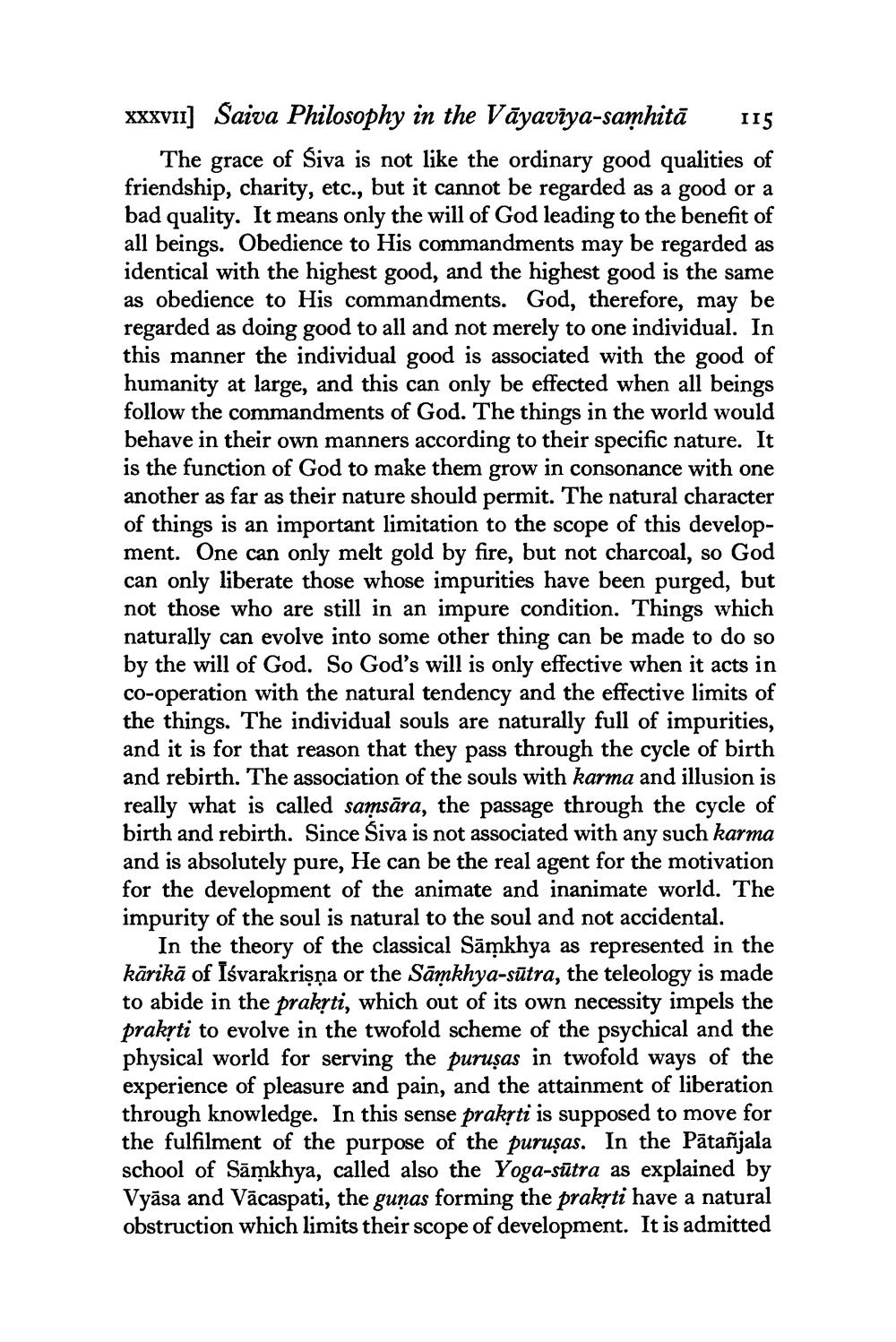________________
XXXVII] Saiva Philosophy in the Vāyaviya-samhitā 115
The grace of Siva is not like the ordinary good qualities of friendship, charity, etc., but it cannot be regarded as a good or a bad quality. It means only the will of God leading to the benefit of all beings. Obedience to His commandments may be regarded as identical with the highest good, and the highest good is the same as obedience to His commandments. God, therefore, may be regarded as doing good to all and not merely to one individual. In this manner the individual good is associated with the good of humanity at large, and this can only be effected when all beings follow the commandments of God. The things in the world would behave in their own manners according to their specific nature. It is the function of God to make them grow in consonance with one another as far as their nature should permit. The natural character of things is an important limitation to the scope of this development. One can only melt gold by fire, but not charcoal, so God can only liberate those whose impurities have been purged, but not those who are still in an impure condition. Things which naturally can evolve into some other thing can be made to do so by the will of God. So God's will is only effective when it acts in co-operation with the natural tendency and the effective limits of the things. The individual souls are naturally full of impurities, and it is for that reason that they pass through the cycle of birth and rebirth. The association of the souls with karma and illusion is really what is called samsāra, the passage through the cycle of birth and rebirth. Since Siva is not associated with any such karma and is absolutely pure, He can be the real agent for the motivation for the development of the animate and inanimate world. The impurity of the soul is natural to the soul and not accidental.
In the theory of the classical Sāmkhya as represented in the kārikā of Īśvarakrişņa or the Sāmkhya-sūtra, the teleology is made to abide in the prakrti, which out of its own necessity impels the prakrti to evolve in the twofold scheme of the psychical and the physical world for serving the puruşas in twofold ways of the experience of pleasure and pain, and the attainment of liberation through knowledge. In this sense prakrti is supposed to move for the fulfilment of the purpose of the puruşas. In the Pātañjala school of Samkhya, called also the Yoga-sūtra as explained by Vyāsa and Vācaspati, the gunas forming the prakrti have a natural obstruction which limits their scope of development. It is admitted




